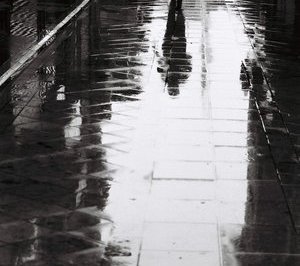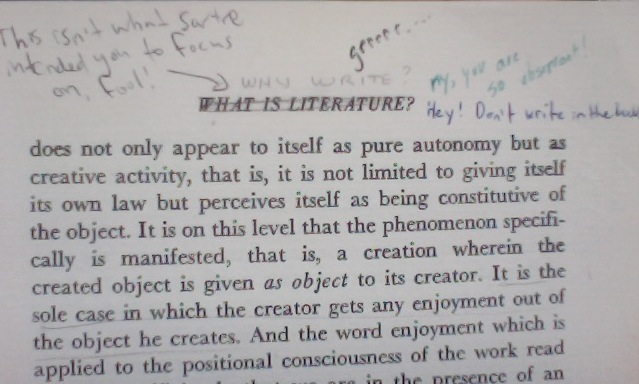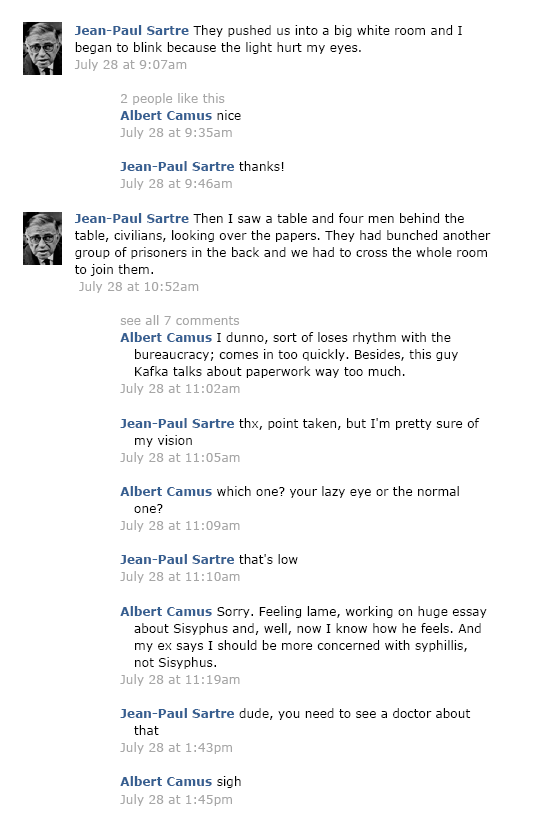Sartre v. the Bombing of Billancourt

“Deleuze devoured Being and Nothingness over the course of the week, and on Sunday, he and Michel Tournier went to the Sarah Bernhardt Theater to see a production of Sartre’s The Flies. They were forced to leave the theater when a bomb alert sounded, but while the crowd rushed to the underground bomb shelter, the two friends decided to ignore the warning and enjoy the lovely sunny afternoon.
‘We strolled along the quays in a totally deserted Paris. The city was completely empty. Night in mid-day. Then the bombs began raining down. The RAF was targeting the Renault factories in Billancourt. . . . We have nothing to say about this mediocre event. We were only concerned with Orestes and Jupiter struggling with the “flies.” The sirens sounded, the bomb alert was over a half hour later, and we returned to the theater. The curtain rose. Jupiter-Dullin was there, shouting for a second time, “Young man, do not blame the gods.”‘”
– Francois Dosse, Gilles Deleuze & Felix Guattari: Intersecting Lives, pp. 93-94 (Columbia U. Press, 2010)
Sartre publishes “The Wall” on his facebook wall
September 7th, 2010 / 6:23 pm

Jean-Paul Sartre deserves photoshop corrective eye surgery. Being and Nothingness can now finally feel normal, without the half-gaze of genius ripping your mind apart.
I like existentialism a lot
 I think when people talk about existentialism, they are talking about one of two things: the actual philosophy, and—more generically—books that ‘feel’ and are labeled as being existentialist.
I think when people talk about existentialism, they are talking about one of two things: the actual philosophy, and—more generically—books that ‘feel’ and are labeled as being existentialist.
Existentialism, since like Jr. year in highschool, has always been ‘cool,’ like the Smiths or the Cure, for smart and depressed people. I’m not saying I was or am smart or depressed, just that certain books made me feel less lonely, which is weird because those books and authors seemed really lonely. I guess it’s the whole ‘read to know you’re not alone thing.’
Academic existentialism is dry, difficult to understand, and makes me feel more lonely. I tried reading Being and Time, and Being and Nothingness by Heidegger [see Pink’s] and Sartre, respectively, but it was sort of like math. Every time they said a sentence, they tried to prove it using other sentences which they then had to prove. I lost track of what they were arguing (at me) about. It’s like arguing with a girlfriend, without the boobs. Most philosophy is this way: noble and boring.
The existentialism I like are the books that people call existentialism. I will name them and talk about them briefly after the break.



